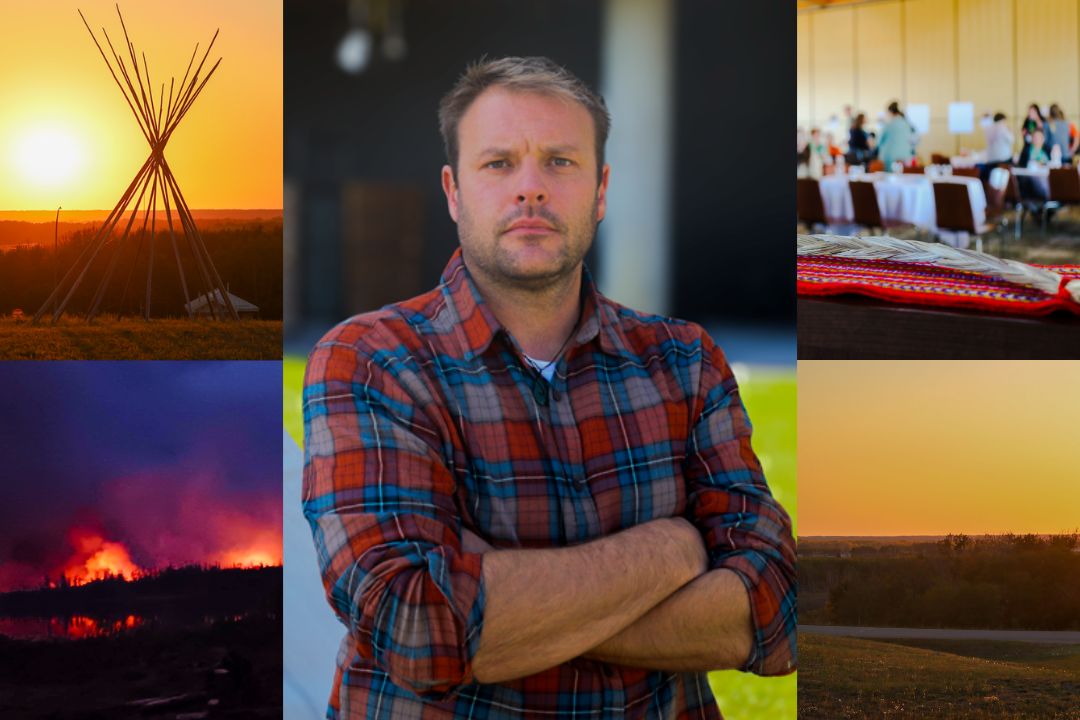
USask researchers receive $1.5 million for rapid response wildfire research
Each year, wildfires present significant challenges for Canadian communities, forcing individuals from their homes, impacting their livelihoods and posing a risk to their health. For First Nations and Métis communities the damage from wildfires has been experienced year after year and has left lasting impacts.
Researchers from the nātawihowin First Nations Research Network / mamawiikikayaahk Métis Research Network (SK-NEIHR) and the University of Saskatchewan (USask) are leading a community-focused research initiative that examines the impacts of wildfire evacuations on Indigenous communities. The National Coordinating Centre of the Network Environments of Indigenous Health Research (NCC-NEIHR) recently received a $1.5 million investment from the Canadian Institutes of Health Research (CIHR) and the Institute of Indigenous Peoples Health (IIPH) to begin this rapid response research.
“The wildfires this summer led to over 40,000 residents being evacuated across Saskatchewan and Manitoba, displacing individuals from their communities for extended periods of time. And when they were finally able to go back, many found their communities, as well as old logging and trapping places, burnt to the ground,” said Dr. Robert Henry (PhD), an associate professor in the Department of Indigenous Studies in the College of Arts and Science, USask’s Canada Research Chair in Indigenous Justice and Wellbeing, and the principal investigator of SK-NEIHR and lead of the NCC-NEIHR.
This grant will help Henry and his team work with First Nations and Métis communities to develop research projects that evaluate the impacts of wildfires, evacuations, and develop rapid research approaches to address future disasters, emergencies and pandemics.
“These projects are quite diverse because communities have different experiences,” said Henry. “One project is looking at the impact of evacuees on communities that are opening their doors to support others. For example, one community shut down their school to house evacuees, and we want to evaluate how that closure impacted parents, teachers and students.”
Henry is hoping these real-time research projects will help policy makers act swiftly and make quick changes that can provide communities with immediate support in times of crisis.
“We know wildfires are going to be impacting our country again and this grant has the potential to support communities and regions affected during the next season and beyond. We aim to have everything set up so when fire season starts, we can work with communities quickly to evaluate the impact,” said Henry.
The NCC-NEIHR leads the national NEIHR networks, which focus on capacity development, research and knowledge translation centred on First Nations, Inuit, and Métis priorities. The investment from CIHR helps to support the network as they work together with community partners, fostering knowledge-sharing opportunities, and empowering communities to respond to wildfires and other challenges when they occur.
“We want to start developing pathways to do this research in an ethical way, while people are going through very challenging and difficult experiences,” said Henry. “We hope that through this work good data and information can be shared with policy-makers to make changes in ‘real-time’ to improve services.”

